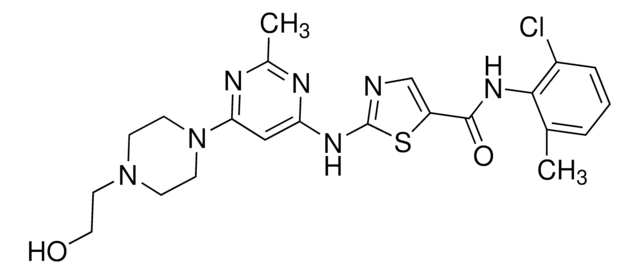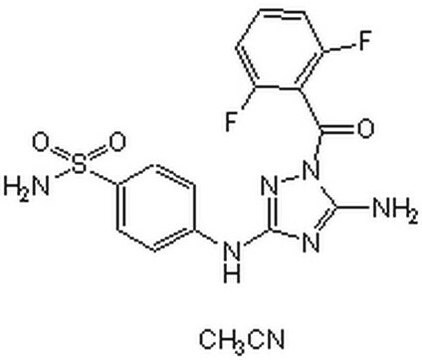17-10400
Anti-phospho-MLKL (Ser358) Antibody Set
from rabbit, purified by affinity chromatography
Synonym(s):
Mixed lineage kinase domain-like protein, MLKL
About This Item
Recommended Products
biological source
rabbit
Quality Level
antibody form
purified antibody
antibody product type
primary antibodies
clone
polyclonal
purified by
affinity chromatography
species reactivity
human
technique(s)
western blot: suitable
UniProt accession no.
shipped in
wet ice
target post-translational modification
phosphorylation (pSer358)
Gene Information
human ... MLKL(197259)
General description
RECOMMENDED USAGE:
It is recommended to first perform immunoprecipitation on your sample using the non-phosphorylated MLKL antibody for “total” MLKL protein isolation (see protocol section on page 2 of the Certificate of Analysis); then use the immunoprecipitated sample to detect the phosphorylated protein using the phospho-MLKL (Ser358) antibody via western blot.
Specificity
Immunogen
Application
Untreated HT-29 cell lysates or lysates from HT-29 cells treated with Cycloheximide,Z-VAD-FMK and TNF alpha were first immunoprecipitated using the Anti-MLKL “total” antibody (1:1000 dilution) to isolate the MLKL protein.
The isolated “total” MLKL protein sample was then probed with Anti-phospho-MLKL (Ser358) (1:1000 dilution).
Components
One vial of MLKL “Total” antibody
Quality
Anti-phospho-MLKL (Ser358) Antibody: Evaluated by Dot Blot on phosphorylated and non-phosphorylated MLKL peptides.
Target description
Physical form
100 µg (concentration: 1 mg/mL) of Anti- MLKL purified polyclonal antibody in 0.1 M Tris-Glycine (pH 7.4), 150 mM NaCl, with 0.05% sodium azide.
Other Notes
Not finding the right product?
Try our Product Selector Tool.
Storage Class
12 - Non Combustible Liquids
flash_point_f
Not applicable
flash_point_c
Not applicable
Certificates of Analysis (COA)
Search for Certificates of Analysis (COA) by entering the products Lot/Batch Number. Lot and Batch Numbers can be found on a product’s label following the words ‘Lot’ or ‘Batch’.
Already Own This Product?
Find documentation for the products that you have recently purchased in the Document Library.
Our team of scientists has experience in all areas of research including Life Science, Material Science, Chemical Synthesis, Chromatography, Analytical and many others.
Contact Technical Service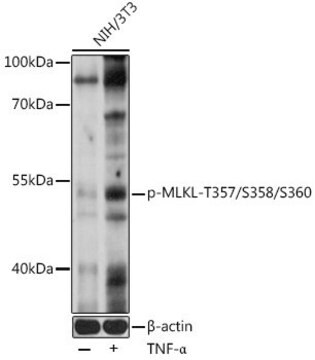
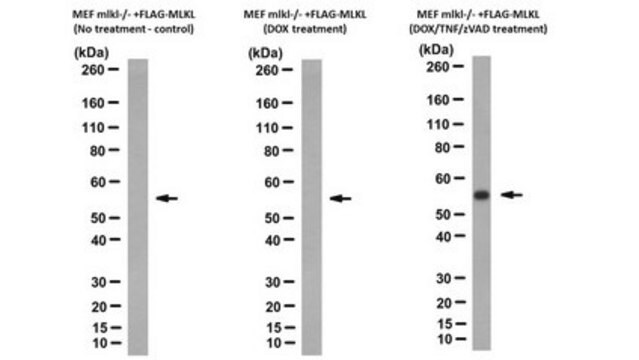

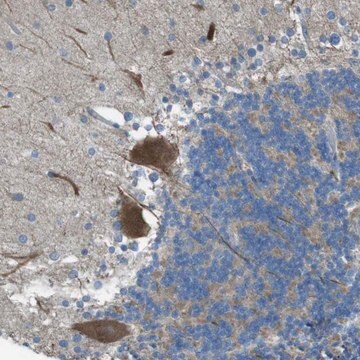

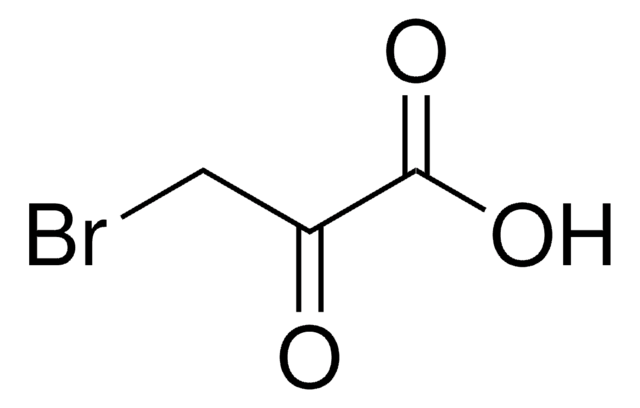
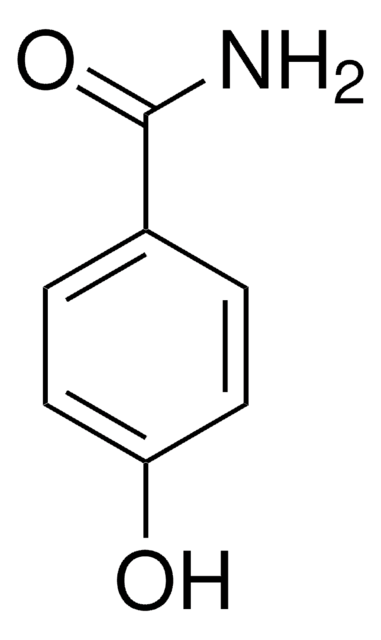
![7-Cyclopentyl-5-(4-phenoxyphenyl)-7H-pyrrolo[2,3‑d]pyrimidin-4-ylamine ≥98% (HPLC)](/deepweb/assets/sigmaaldrich/product/structures/373/481/73848ea9-b1fa-4ae5-8cf0-d135386891ae/640/73848ea9-b1fa-4ae5-8cf0-d135386891ae.png)
